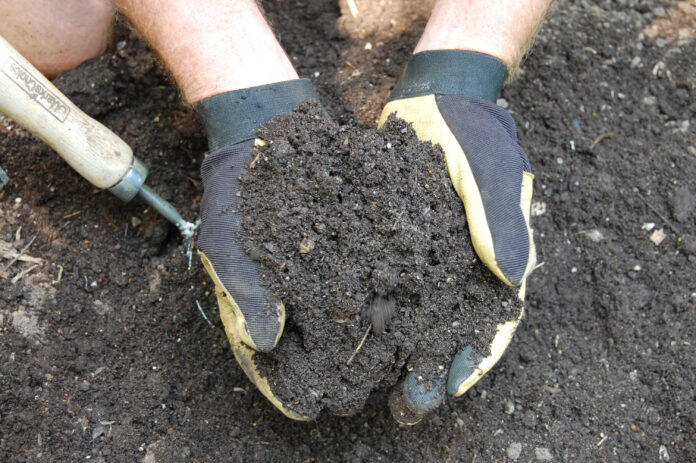What is the key to successful growing? “It is about giving lots of love back to the soil.” According to Angel Beyde of Good Fortune Farmstead who was featured on our Green File podcast recently (https://feeds.blubrry.com/feeds/greenfile.xml).
Mark: “Okay, what does love mean?”
Angel: “Compost. Lots and lots of compost”.
You don’t have to be a romantic to appreciate the value of compost – the results speak for themselves. Right there in the soil.
There are many benefits to compost: it retains moisture, sequesters carbon, and it feeds plants necessary nutrients, many of which are not found in commercial fertilizers.
The climate appreciates your composter too, as kitchen scraps and yard waste material that end up in landfill decomposes anaerobically (in the absence of oxygen) which produces methane – a greenhouse gas 21 times more potent than CO2 for retaining heat in the atmosphere.
As you are looking at the pile of fallen leaves, dead tomato plants and other garden debris from tidying up the garden this fall, consider adding them to your compost pile. If you don’t have your own compost pile, find one. Or better yet, build one. According to Susan Antler, Executive Director of the Composting Council of Canada, we throw out up to 50% of compostable materials in part because only 61% of Canadians have access to some form of composter.
Condos and apartment buildings are a particular challenge. However, there have been examples of resident-led community compost programs in high-rise buildings that have been successful in diverting organic waste into a valuable resource.
Here are our tips for building your own compost, for your house or condo community:
- Get or build a composter. Compost units can vary in size and are a good opportunity to apply creativity and resourcefulness to salvaged building materials. Serviceable composting units can be made of four wooden skids, aligned in a square, providing the needed ventilation and mass to get the party started. Many municipalities provide free or discounted composting units to residents. Check with your municipal government.
The pre-made route provides many options. The key to success is that you mix the right materials (see below) and provide lots of air circulation either by venting the organic mass or turning it monthly to introduce oxygen.
- Brown/Green Dichotomy. Composting is a green act. The brown stuff is carbon-rich fallen leaves and shredded newspaper or cardboard. The green stuff is kitchen scraps and grass clippings that are more nitrogen rich. The key is to maintain 1 part green to every 5 to 10 parts brown. The abundance of fallen leaves this time of year means that this is an important time of year to build or acquire a composter.
- Turn it like a record table. Your compost pile is breathing, and by turning it you are helping oxygenate it to feed this process and accelerate the decomposition process. You can use a garden fork or spade to turn it over throughout the season – it’s okay to take a break for the winter months as microbial activity in your compost will slow down.
- Heat – how hot? Ideally, the middle of your compost pile will reach 50-70 degrees Celsius in mid-summer. It will cool through the winter, but unless you live way up north it should not freeze through. If your compost isn’t getting warm, add more nitrogen (green material), make a bigger compost, or water it to ensure there is adequate moisture.
- Harvest now if you already have compost, as fall is a good time to go spread a thick layer of compost over the garden before putting it to bed before winter. Make sure to leave some fresh compost to keep things going as you add new material – think of it like sourdough bread starter, with live bacteria digesting organic matter rather than fermenting wheat.
After another summer of bounty and blooms, love your garden back by investing in compost.
Mark Cullen is an expert gardener, author, broadcaster, tree advocate and Member of the Order of Canada. His son Ben is a fourth-generation urban gardener and graduate of University of Guelph and Dalhousie University in Halifax. Follow them at markcullen.com, @markcullengardening, and on Facebook.


